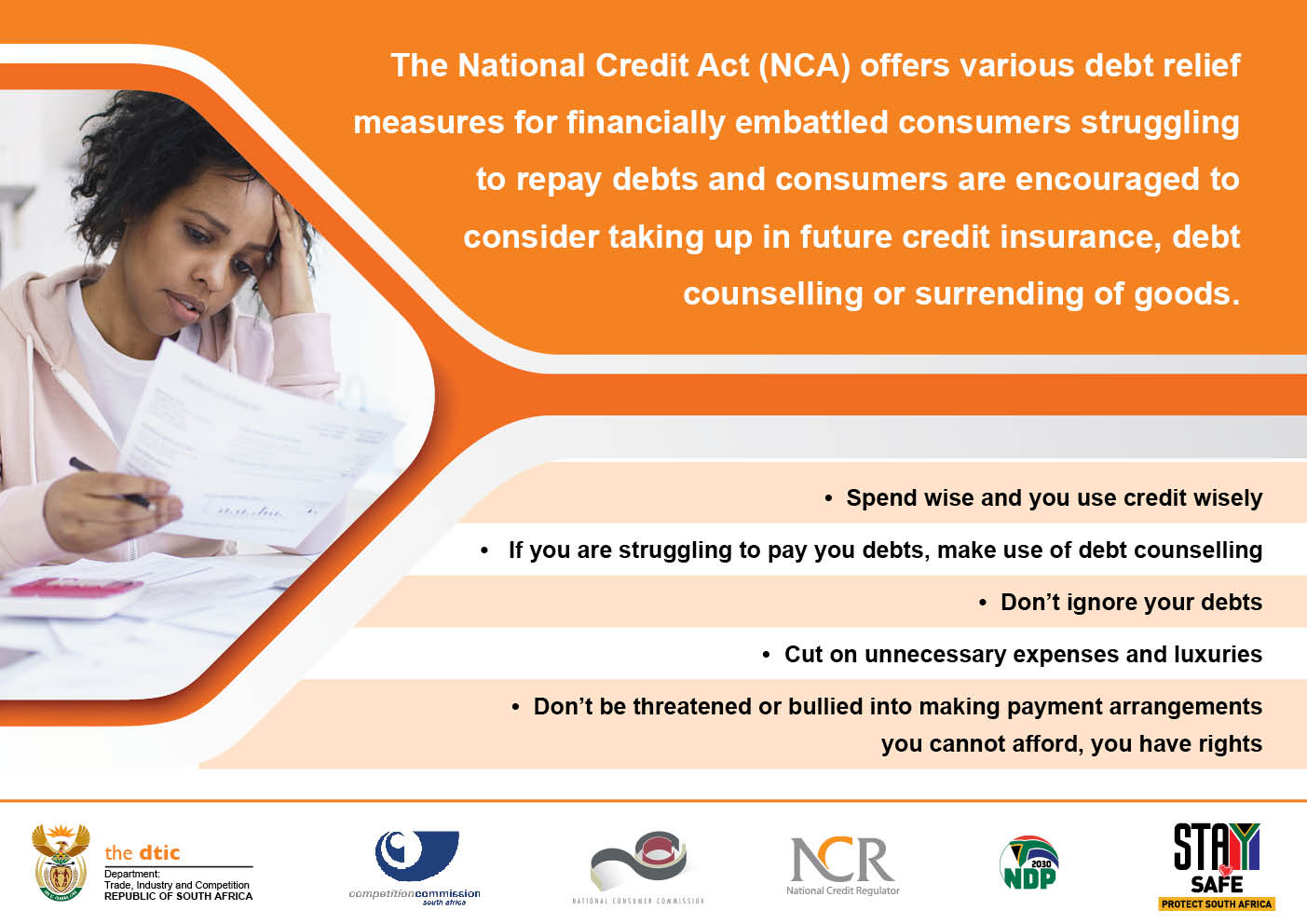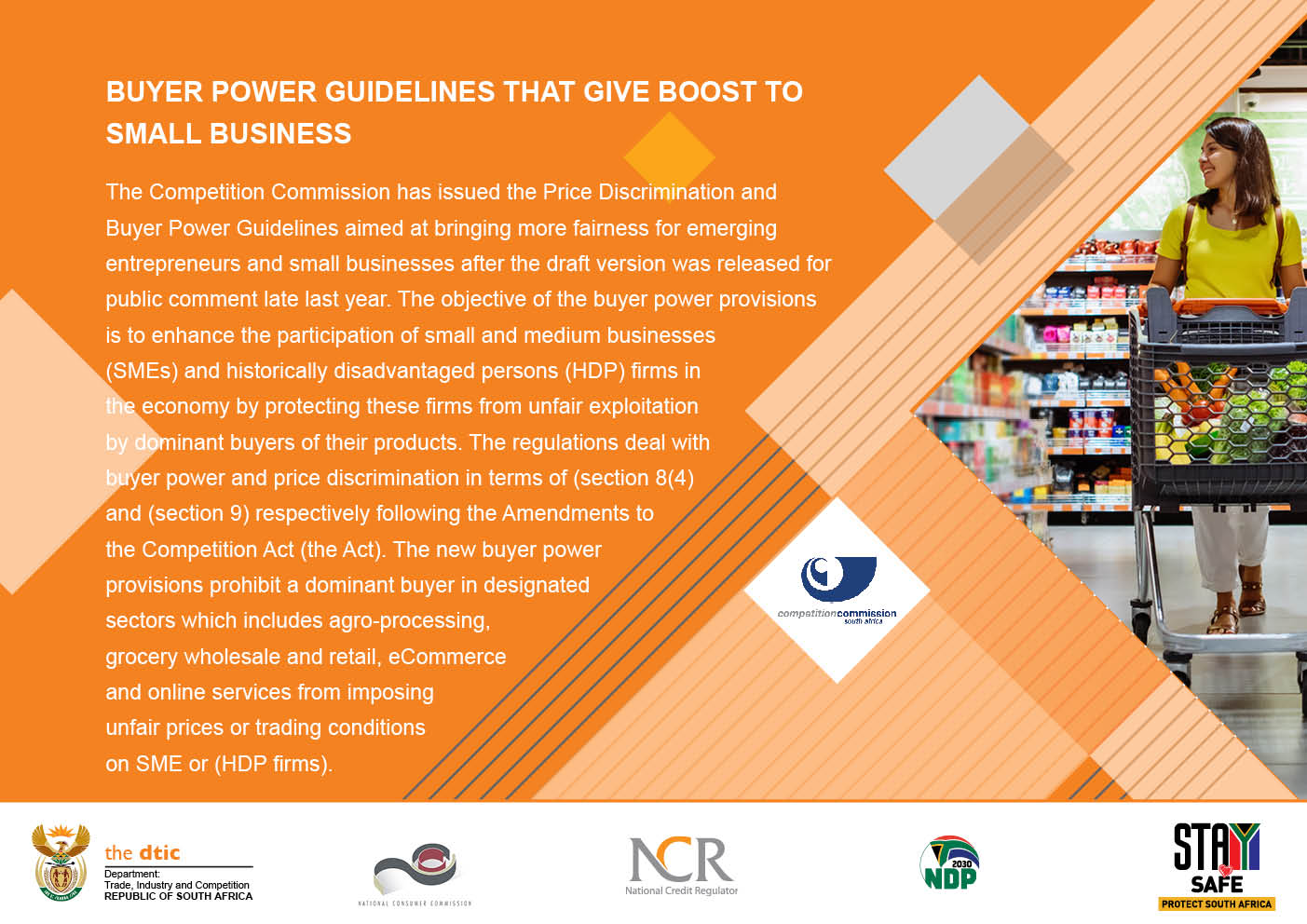The South African government remains committed to attending to and resolving issues of consumer protection even during the COVID-19 pandemic. This was said by the Deputy Director-General of Consumer and Corporate Regulation at the Department of Trade Industry and Competition (the dtic), Dr Evelyn Masotja. Masotja was facilitating a Consumer Protection Webinar hosted by the dtic in conjunction with its agencies, the Competition Commission (CompCom), National Consumer Commission (NCC) and National Credit Regulator (NCR), as well as the Government Communication and Information System (GCIS).
Masotja said work is being done to close different gaps in the areas of consumer protection and consumer redress, to ensure that there is continuation of service delivery to the public. According to her, issues of consumer protection are strategically important for government and the public, and it is imperative for sessions such as the webinar to inform consumers about their rights in terms of what the legislation provides, particularly the Consumer Protection Act, the National Credit Act and the Competition Act.
“Some of these legislation have been amended from time to time to ensure that we provide protection, secure rights of the public and that everyone can participate meaningfully in the economy,” added Masotja.
With all the consumers vulnarability in terms of income generation, the Acting Commissioner at the National Consumer Commission, Ms Thezi Mabuza, noted four areas of the Consumer Protection Act that prohibit people from participating or promoting schemes that include pyramid schemes. She said telling signs of a pyramid scheme include a promise of high returns of above 10% of the repo rate in a short space of time. They ask you to recruit more members for you to earn your profit, pay-outs are made from new recruits and not from profits, where one advances in the hierarchy levels through the recruitment of others and where the scheme is not registered with Financial Service Conduct Authority as a financial service. The National Consumer Commission can be reached on this number: 0800 014 880
The Deputy Commissioner of the Competition Commission, Mr Hardin Ratshisusu noted that the COVID-19 pandemic has presented challenges as some companies started taking advantage of consumers.
“Because of the pandemic, in about four months we received cases that we normally receive in six years. About 1700 cases of alledged price gouging were received just during the pandemic. To address such, Minister Patel acted swiftly and published consumer and customer regulation which allows the Commission to zoom into the essential products that we needed to look at during the pandemic,” said Ratshisusu.
While encouraging consumers to lodge complaints with the Commission, Ratshisusu addressed the process and steps that consumers can take if they want to lodge an unfair price or colluding complaint with the Commission. He stressed the importance of studying the Competition Act which will make the process easier for consumers.
“If you suspect a firm is engaged in price gouging please contact the Competition Commission with the following information: The name and location of the store/vendor where you purchased the item and their address, details of the product, including, but not limited to, the product type, brand, size, and price, receipts, invoices, quotations or pictures showing the price. Send a brief WhatsApp or a textshort to 084 743 0000 or email us on ccsa@compcom.co.za,” added Ratshisusu.
Importantly, Ratshisusu said the Commission was established to protect consumers and their welfare while ensuring that the economy grows, develops and becomes inclusive and competitive.
The Chief Executive Officer of the National Credit Regulator, Ms Nomsa Motshegare stated that consumers have a number options to pursue if they are unable to fulfill their financial obligations, especially in paying their loans during this pandemic. She mentioned that consumers who are struggling to repay their debts can approach a debt counsellor who is registered and regulated by the NCR. Debt counsellors offer assistance to over-indebted consumers. During this pandemic, especially between April and June, a number of banks offered debt relief measures in a form of payment holidays. Consumers also have an option of claiming for credit life insurance which is sometimes included in the credit agreement when consumers take out credit.
“Debt counselling is one option that consumers can take advantage of and it does work. On average per month about a billion gets to be distributed by payment distribution agents to credit providers,” said Motshegare.
All regulators in the panel agreed that education and awareness campaigns remain key in all the agencies to ensure consumers are aware of their rights and obligations.
For more information on consumer issues visit the websites of the following institutions Competition Commission: http://www.compcom.co.za; National Credit Regulator: https://www.ncr.org.za; National Consumer Commission: https://www.thencc.gov.za; The Motor industry Ombud of South Africa: https://www.miosa.co.za; Consumer Goods and Services Ombud: https://www.cgso.org.za; and Credit Ombud: https://www.creditombud.org.za.





Enquiries:
Sidwell Medupe-Departmental Spokesperson
Tel: (012) 394 1650
Mobile: 079 492 1774
E-mail: MSMedupe@thedti.gov.za
Issued by: The Department of Trade, Industry and Competition (the dtic)
Follow us on Twitter:
@the_dti
@CompComSA
@NCC_COVID19

